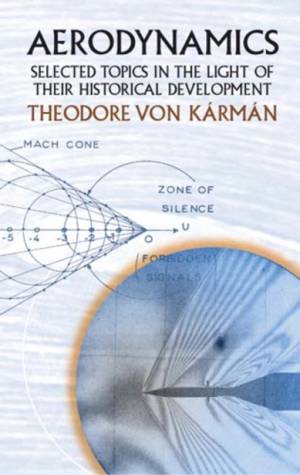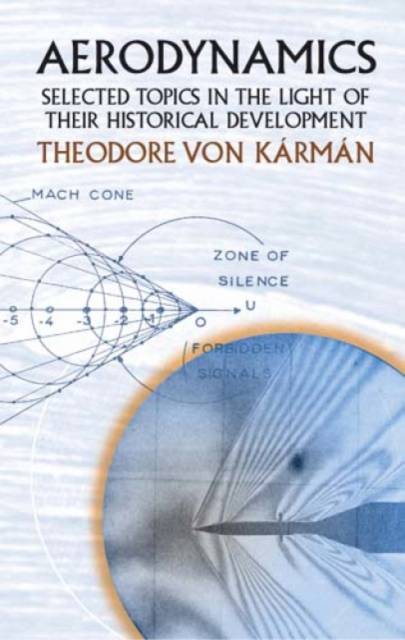
- Afhalen na 1 uur in een winkel met voorraad
- Gratis thuislevering in België vanaf € 30
- Ruim aanbod met 7 miljoen producten
- Afhalen na 1 uur in een winkel met voorraad
- Gratis thuislevering in België vanaf € 30
- Ruim aanbod met 7 miljoen producten
Omschrijving
Authoritative and engaging, this popular history traces the science of aerodynamics from the age of Newton through the mid-twentieth century. Author Theodore von Karman, a well-known pioneer in aerodynamic research, addresses himself to readers acquainted with the facts of aviation but less familiar with the field's underlying theories.
A former director of the Aeronautical Laboratory at the California Institute of Technology, von Karman founded the U.S. Institute of Aeronautical Sciences in 1933. In this volume, he employs straightforward, nontechnical language to recount the behind-the-scenes struggles of engineers and physicists with problems associated with lift, drag, stability, aeroelasticity, and the sound barrier. He explains how an increasing understanding of the motion of air and its forces on moving objects enabled significant improvements in airplane design, performance, and safety.
Other topics include the effects of speed on ailerons; the factors behind the phenomenon of a sonic boom; and the plethora of problems surrounding the inception of space travel: surmounting the earth's gravitational field, negotiating a safe return, and sustaining life amid the perils of interstellar radiation, weightlessness, and meteoric activity.
Specificaties
Betrokkenen
- Auteur(s):
- Uitgeverij:
Inhoud
- Aantal bladzijden:
- 203
- Taal:
- Engels
- Reeks:
Eigenschappen
- Productcode (EAN):
- 9780486434858
- Verschijningsdatum:
- 19/03/2004
- Uitvoering:
- Paperback
- Formaat:
- Trade paperback (VS)
- Afmetingen:
- 141 mm x 215 mm
- Gewicht:
- 235 g

Alleen bij Standaard Boekhandel
Beoordelingen
We publiceren alleen reviews die voldoen aan de voorwaarden voor reviews. Bekijk onze voorwaarden voor reviews.











